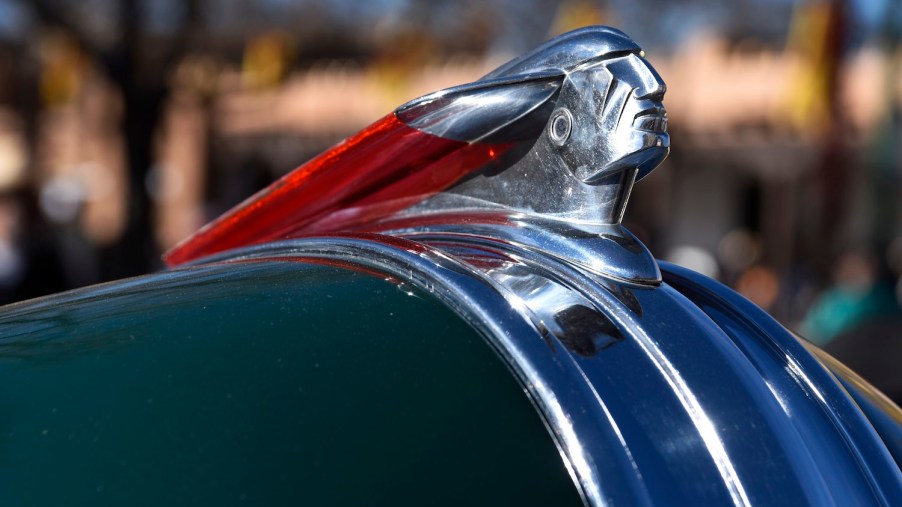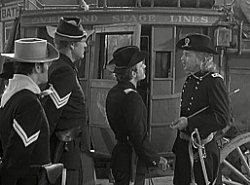
Posted on 02/17/2024 6:34:10 PM PST by Red Badger

Are automakers using tribal names honoring those people or appropriated their culture? Learn more about the debate and models under fire.
The Washington Redskins NFL team has officially changed its name to the Washington Commanders. So what–if anything–should Jeep do about the Cherokee? What about Winnebago, the Volkswagen Touareg, and Indian Motorcycles? You may be surprised just how many cars are named after tribes. Some of these models are coming under fire as Native Americans ask automakers to reconsider their names.
Which cars are named after tribes? The most obvious cars named after Native American tribes are Jeep’s Cherokee and Comanche. But don’t forget Chevrolet’s Apache, Pontiac’s Aztek, and the entire Winnebago brand. In addition, over a dozen more automakers use place names that were tribe names first.
What are the vehicles with names that may be borrowed from a tribe or lifted from places that in turn borrowed them from tribes? The Chevrolet Cheyenne, Dodge Dakota, Toyota Tacoma, and Volkswagen Taos. The big one here is Pontiac, which happens to be a town in Michigan–but in truth, the automaker was named after the tribe.
Pontiac certainly didn’t shy away from the native origins of its name. This automaker released the Pontiac Aztek, Pontiac Chieftan, Pontiac Star Chief, and Pontiac Super Chief. I mean, its logo is even an arrowhead.
A vehicle you might not instantly identify as having a Native American name is the Ford Thunderbird. The employee who submitted the name borrowed it from a legendary creature that tribes of the Southwest supposedly told stories about.
The most blatant name borrowing is the Indian motorcycle company. This brand also leans into its identity with models such as the “Chief,” “Scout,” and “Dark Horse.”
Automakers certainly haven’t limited their vehicle names to American tribes. The Nissan Qashqai is named after an ethnic group that lives in Iran and surrounding countries. The Volkswagen Touareg borrows its moniker from a desert-dwelling tribe from the Sahara. And the Renault Oroch’s name probably originates with a tribe in eastern Russia.
Should cars named after tribes change their names? As with sports teams, this is a divisive issue. Some might say naming a car after a tribe is a sign of respect, but others call it cultural appropriation. Whatever your stance, it is clear that the pressure on corporations to change this practice is mounting.
In early 2021, Chuck Hoskin, Jr., the Cherokee Nation’s principal chief, called on Jeep to change its SUV’s name. He later explained his request to Car and Driver:
“I’m sure this comes from a place that is well-intended, but it does not honor us by having our name plastered on the side of a car…The best way to honor us is to learn about our sovereign government, our role in this country, our history, culture, and language and have meaningful dialogue with federally recognized tribes on cultural appropriateness.”
Stellantis said it was open to changing the name and had even opened talks with the Cherokee Nation. But several months later, the automaker announced that it would not be changing the Jeep Cherokee’s name.
What do you think? Do you consider cars named after tribes an offensive form of cultural appropriation? Or do you think Jeep builds uniquely American cars and honors some of America’s earliest citizens with the name? Let us know in the comments section below.
Next, read about the Renault Oroch pickup, named after a nearly forgotten tribe, or learn all about the Cherokee Nation’s call to change the Jeep’s name in the video below:
VIDEO AT LINK........................



I thought Winnebago was where they were built.
I have a car that’s named after the first book of the Bible. I suppose I should be offended but for some strange reason I’m not.
The Army traditionally has always named all its helicopters after Indian tribes. The "real" name of the UH-1 "Huey" was "Iroquois." "Huey" was a nickname taken from a comic book character. The OH-58's proper name was the "Kiowa" but it was almost always called "the fifty-eight."
The AH-1 Cobra was an exception but that was because the Cobra itself was a derivative of the UH-1 Iroquois.
The stupidity of this is they weren't using the names of Indian tribes to denigrate them but to honor them.
Do paratroopers still yell “Geronimo!” when they exit the aircraft?...............
I have no issues with Indiana but I’d really like to rid us all of Illinois.
I thought Winnebago meant “middle aged guy with big ego”............
I wonder how well the Chevy “Caucasian” would sell.
The proper response is SO WHAT?
I’m Scotch, English, Irish and German.
I don’t have a problem with anyone “appropriating” my heritage.
I welcome ethnic jokes on the stereotypes. They’re funny!
I’m me, and I didn’t have any choice in the matter.
Why are people so hung up on this this cr@p?
You’re you. Lighten up, have some fun, and do the best you can!
“ Are automakers using tribal names honoring those people or appropriated their culture?”
Because Indians had so many automobiles.
Apparently, our economy needs to get even WORSE before people stop indulging in this silliness.
Chuck Hoskins Jr, shame on you!
they have incorporated our language and now want to tell us what words we can use...
The stereotype of a Scot is an engineer (think Startrek). I am an engineer and so was my father before me. Maybe my ancestors were engineers back when everyone lived in caves.
I love the stereotype. We make things work.
How can American Indians be insulted by using their names to imply strength and ability?
Why would these not sell?
Ford hebrew
Chevy Canadian
honda hungarian
Austin Pict
Volvo Viking Invader
Fiat Siciliano
Citroen Basque Separatist
Alexander Graham Bell was a Scot.............
Alexander Graham Bell was a Scot.............
Plymouth Pygmy
I might show up anywhere in my NSA Prober.
See the U.A.E. in your Khadafy.
Disclaimer: Opinions posted on Free Republic are those of the individual posters and do not necessarily represent the opinion of Free Republic or its management. All materials posted herein are protected by copyright law and the exemption for fair use of copyrighted works.